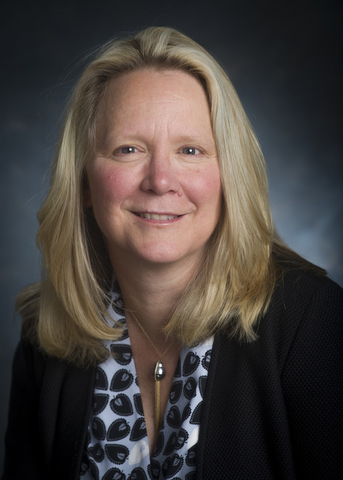 Fran Lund, Ph.D.Fran Lund, Ph.D., a professor of microbiology at the University of Alabama at Birmingham and the Endowed Chair in Immunology in the UAB Immunology Institute, has been named a 2024 Distinguished Fellow of the American Association of Immunologists.
Fran Lund, Ph.D.Fran Lund, Ph.D., a professor of microbiology at the University of Alabama at Birmingham and the Endowed Chair in Immunology in the UAB Immunology Institute, has been named a 2024 Distinguished Fellow of the American Association of Immunologists.
Lund is one of 22 active, long-term members recognized this year for their distinguished careers, outstanding scientific contributions, and service to AAI and the immunology community. She has been a member of AAI for 26 years.
Lund is an immunologist with a distinguished record of discoveries about cells that both defend against infection and help cause inflammatory disease. She came to UAB in 2012 as the new chair of the Department of Microbiology and relinquished that responsibility in 2022 to become the founding director of UAB’s Immunology Institute, a cutting-edge interdisciplinary hub for faculty, researchers, clinicians, health policy experts and educators to advance the study of immunology and improve human health through immune-based therapies, including vaccines.
Four UAB faculty have previously been named as Distinguished Fellows of the AAI, an award that occurs annually and is among the highest honors bestowed by AAI. They are John Kearney, Ph.D., in 2023; David Chaplin, M.D., Ph.D., in 2020; Judith Kapp, Ph.D., in 2019; and Robert Rich, M.D., a former UAB Marnix E. Heersink School of Medicine dean, in 2019.
This string of Distinguished Fellows points to the strength of immunology research at UAB, Lund says.
Lund is well-known for work showing that B lymphocytes play a larger role in the immune response than previously appreciated. While scientists had long recognized that B cells make antibodies that label bacteria and viruses for destruction by the immune system, Lund’s research group showed that B cells also produce chemical signaling molecules called cytokines. They demonstrated that these B cell cytokines are able to alter the magnitude, duration and quality of immune responses to pathogens, allergens or autoantigens.
The American Association of Immunologists — founded in 1913 — includes more than 7,700 professionally trained scientists from all over the world who are dedicated to the advancement of immunology knowledge and its related disciplines, in order to foster the interchange of ideas and information among investigators and help integrate immunologic principles into clinical practice.
The UAB Immunology Institute serves as a focal point for coordinating immunologic research, which by its very nature spreads across disciplines, including microbiology, cell biology, transplantation, pediatric and adult medicine, oncology, and pathology. The institute is a point of contact for those interested in immunology education and outreach — both on the UAB campus and within the community and state. Furthermore, it brings researchers across disciplines together for greater collaboration — a distinctive attribute of UAB.
At the end of last year, the institute included 157 UAB faculty and 155 other members in six UAB schools and 35 divisions and departments. Active funding of these researchers totaled $91 million, from 16 National Institutes of Health institutes.
At UAB, Microbiology is a department in the UAB Marnix E. Heersink School of Medicine.